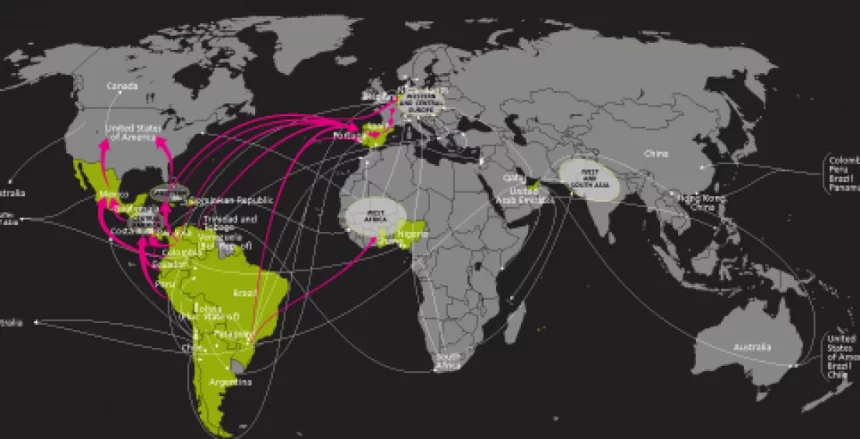A new report shows that drug trafficking trends are changing across Africa, with most African countries that were once transit points for illicit drugs now becoming consumers.
These revelations came during the ongoing 31st meeting of the African Heads of Drug Law Enforcement Agencies (HONLAF) in Abuja, Nigeria, where Kenya is represented by the Ministry of Interior and National Administration, the National Authority for the Campaign Against Alcohol and Drug Abuse (NACADA), the Pharmacy and Poisons Board (PPB), and the Financial Reporting Centre (FRC).
According to the report, Africa has seen an increase in drug cultivation, trafficking, and consumption over the years, slowing economic growth at a time when the continent is dealing with a slew of issues such as drought, poverty, diseases, and corruption.
The Nigerian market ranks first among African cocaine smuggling regions, according to a global report on cocaine released by the United Nations Office on Drugs and Crime (UNODC).
“Based on aggregate reporting to UNODC, by Nigeria and other countries, on the main cocaine trafficking routes during 2018-2021, trafficking of cocaine was reported from Nigeria to 20 countries or territories, including countries within the Sub Region (Burkina Faso, Mali, Niger, Ghana, Senegal, Liberia),” the report reads in part.
Beverly Opwora, Head of Delegation and Secretary for National Administration in the State Department of Internal Security, emphasized the importance of law enforcement agencies and NACADA working together to address these new trends, including the increased use and abuse of synthetic substances.
“In addressing the drug abuse challenge, Kenya is actively implementing a two-pronged drug control strategy focusing on demand reduction and supply suppression,” Ms Opwora said.
“This strategy is aligned to the three International Conventions on drug control, the Political Declaration and Plan of Action of 2009 and other International recommendations including those contained in the 2016 UNGASS Outcome Document,”
Ms Opwora highlighted the key issues that Kenya would like the Regional forum to focus on in her opening statement, specifically the increased demand and use of psychotropic and narcotic drugs and their derivatives, as well as the misuse of precursor chemicals.
“The continued illicit cultivation and trafficking of drugs across the borders calls for cross-border cooperation among African states so as to stem this trend,” She said.
“Globally, there is a strong push for the commercialization of controlled substances such as Cannabis for non-medical purposes, an initiative Kenya strongly objects to,”
According to NACADA Ag. Chief Executive Officer Prof. John Muteti, some of the strategies the Authority is using to reduce demand include targeted mass media campaigns, life skills empowerment for children and youth, positive parenting and strong families, workplace prevention programs, and treatment and rehabilitation for people with substance use disorders.
Prof Muteti also emphasized that the magnitude of the global drug problem is complex and dynamic, necessitating significant investment in developing technical and infrastructural capacities to support effective investigations, prosecution, and other criminal justice processes.
“Alongside capacity building, there is need for enhanced international cooperation and collaboration at all levels noting that drug control is a shared responsibility. However, all these efforts should be anchored to the three international conventions on drug control,” he said.



